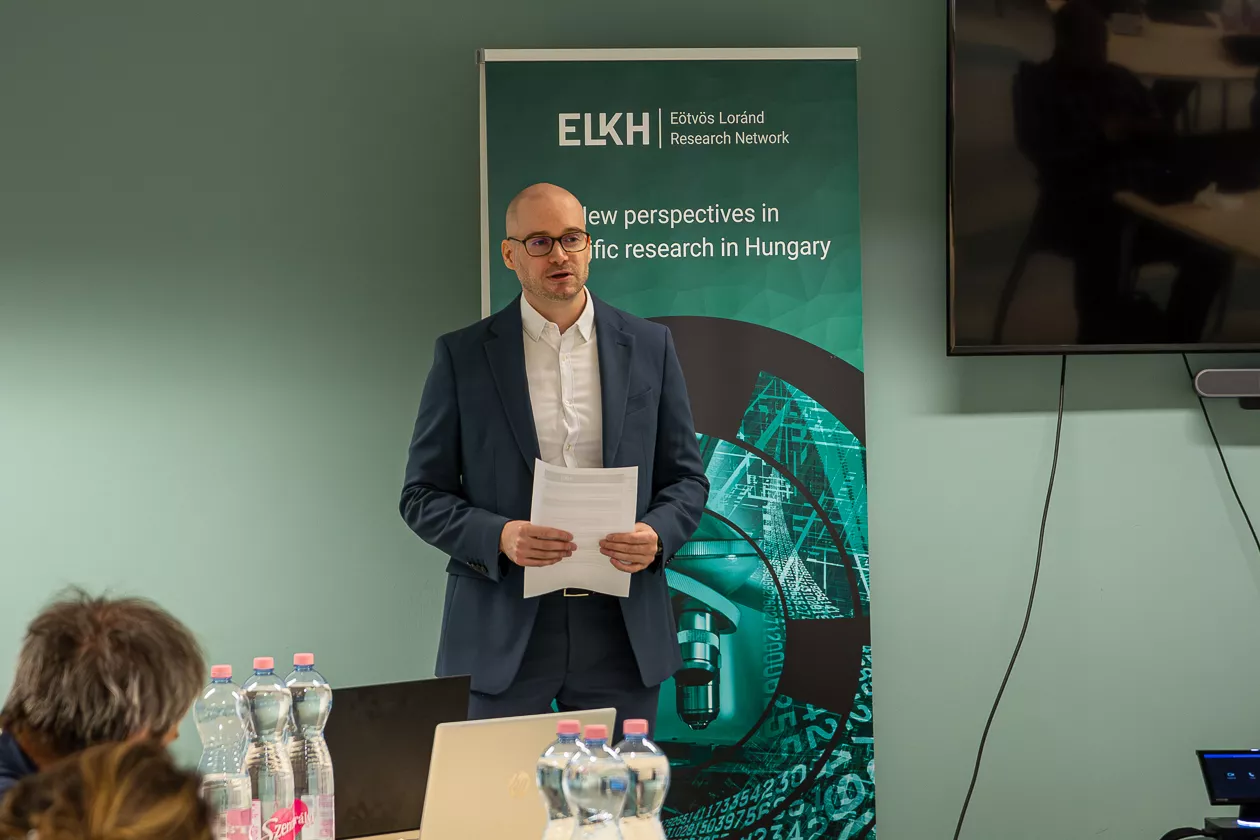Initiated by and with professional support of the Eötvös Loránd Research Network (ELKH) Secretariat, a two-tiered ELKH innovation managers’ network was established at the end of 2022. Its primary task is to identify potential opportunities for innovation in research institutes and projects, and to utilize the resulting knowledge for social and economic benefit. In order to achieve these goals, the ELKH Secretariat places special emphasis on the continuous training of innovation managers of research sites. Therefore, in addition to holding intellectual property and copyright trainings in collaboration with the Hungarian Intellectual Property Office, it organized a professional day for innovation managers on April 27, for the second time.
The program was designed with four thematic sections, taking into consideration the feedback from the "Meet&Greet" event on February 27, 2023. In the first part, experts from the Research Utilization Division of the Department of Innovation of the ELKH Secretariat introduced the logic, operation, and importance of the software that will soon be available to support the management and registry of intellectual creations.
The second section focused on the commercial utilization of intellectual creations, primarily from the perspective of investors. In his presentation titled ’The ”Valley of Death” Investors. Key elements of due diligence and how to prepare for them’, Gábor Heltovics, Venture Partner of the Dutch NLC – The European Healthtech Venture Builder, talked about the criteria that potential investors pay particular attention to when evaluating intellectual creations.
The third part was built around social innovation. Gábor Szüdi, project manager and researcher at the Center for Social Innovation in Vienna, gave a presentation titled 'A Still-Controversial Concept: A Brief Overview of Social Innovation,' followed by a presentation by Andras Peter, innovation manager and head of the Knowledge Transfer Center at the Moholy-Nagy University of Art and Design, on the relationship between design and social innovation.
The fourth section focused on novelty examination of intellectual creations. Ferenc Dénes, the head of the Chemistry and Biotechnology Section of the Patent Department of the Hungarian Intellectual Property Office, presented practical examples for participants to solve during the presentation, demonstrating how intellectual creations can be evaluated from an industrial property protection perspective, primarily with the help of easily accessible patent databases.
To wrap up the professional day, the attendees engaged in a collaborative analysis of a case study that was supervised by the innovation managers of the Research Utilization Division of the Department of Innovation of the ELKH Secretariat. The problem-solving session centered around identifying the key criteria to consider when negotiating with potential investors.
